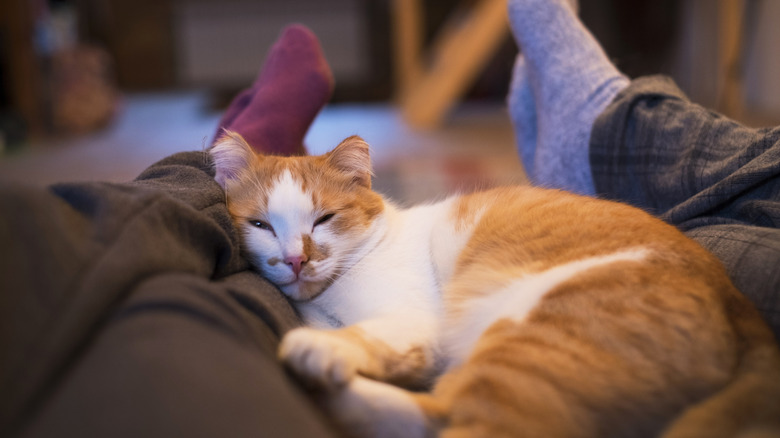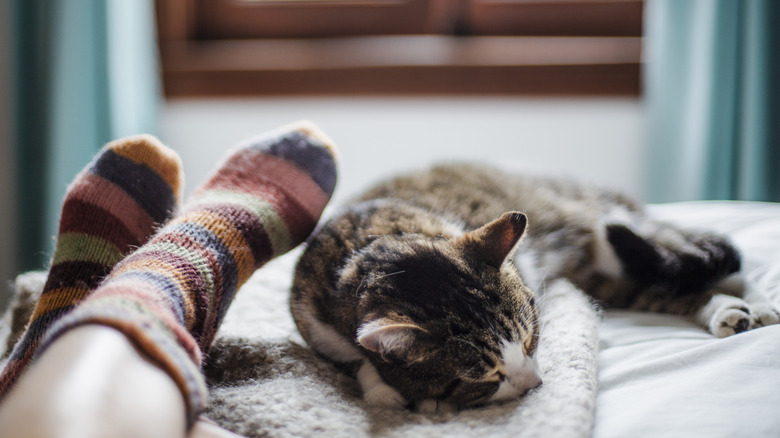Science Has Explained Why Cats Sleep At Our Feet (& It's A Tale As Old As Time)
Is anything more heartwarming than a cat curled by your side or nestled by your legs? Well, other than your cat winking at you or its playful nature when faced with its elusive enemy, the laser-pointer dot. Without a doubt, cats have an array of undeniably adorable behaviors to get their owners' attention. Yet, a kitty's weight at its owner's feet is a comforting reminder of its presence, and science has shown that a feline gets equal benefits from snoozing with us.
The reason cats sleep at your feet is a mix of simple comforts and primal instincts. On the simpler side, a cat's foot cuddles can be tied to warmth and comfort. Who wouldn't want to be toasty and cozy like that? On the other hand, following a routine is essential for a cat's mental health, and nighttime bonding can be a ritual for it. This need for routine was highlighted in a 2013 study published in Applied Animal Behaviour Science. Completed at The Ohio State University College of Veterinary Medicine, the study showed that changing a cat's schedule led to an increase in "sickness behavior" such as vomiting, diarrhea, and lethargy.
A cat sleeping by your feet may also be it seeking protection. Certified cat behavior consultant Kate Luse, M.A., CCBC, highlighted to MarthaStewart.com that a feeling of safety while sleeping is so important because "[cats are] prey for other species like raptors, coyotes, and foxes. As such, they have evolved to prioritize finding safe sleeping spots." Moreover, a familiar scent nearby (its owner) tells it that everything is okay and another entity is watching out for it. Ultimately, don't be surprised if you purchasing your cat a bed turns out to be a total fail, with it only wanting to sleep against you; its affectionate behavior is rooted in practical, emotional, and instinctual behavior.
The majority of adult pet owners let their cats sleep with them
Science has shown the benefits of letting a pet sleep with its owner, including reduced stress and helping develop routines for the human and animal alike. A 2002 study completed by the Mayo Clinic also revealed the potential benefits of a bed buddy, with 60% of participants reporting better sleep with a pet. With both benefits to cat and owner, not allowing a pet to sleep at its owner's feet may appear to be detrimental to both. However, a cat's sleep schedule isn't always aligned with its owner. Since cats are crepuscular (most active at dawn and dusk), their nighttime energy may disrupt their owners' sleep schedules. Alternatively, those with allergies may still want a haven from cat hair.
According to WebMD, a survey revealed that around 62% of the cat-owner pairs questioned sleep together. That said, there's no reason to feel bad for not allowing a cat in the bedroom, and owners can still benefit from bonding with their cat during the day through cuddles, play, or talking back and forth; they may also take cat naps at your feet during the day. Overall, a cat will rest at its owner's feet for various reasons, and they indicate trust and exemplify the remarkable bond between pet and parent.

